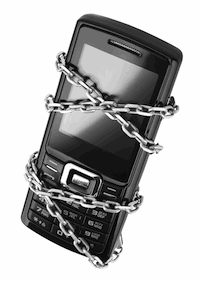The National Cyber Security Alliance (NCSA) and McAfee have produced a report examining the growing false sense of security displayed by mobile users, and how it could impact the nation overall.
The research found that 70-percent of smartphone owners say they feel their device is safe from various types of cybercrime. Further, the same percentage said that they have never installed any form of security protection on their mobile device, and that they feel their device is safe from data theft and other threats.
 According to both organizations, this data shows that taking extra precautions to protect smart phones from virus attacks and other threats is not common practice for U.S. consumers, as most feel their devices are safe enough.
According to both organizations, this data shows that taking extra precautions to protect smart phones from virus attacks and other threats is not common practice for U.S. consumers, as most feel their devices are safe enough.
While this seems bad, and it is true mobile devices are often connected to the corporate world and its intellectual property – in addition to the personal information contained on the device – both valuable to a potential attacker, mobile devices are still the exception and not the norm.
McAfee cited a Consumer Reports study, which stated that one-quarter of the people using their mobile device for financial transactions store their banking passwords on it. That seems like a security risk, but several banks offer mobile banking, which as long as the consumer avoids using it on an open Wi-Fi network, is relatively secure.
Mobile security, for phones or tablet computers, is important. However, the devices can be provisioned for corporate use with security in mind, and consumer usage is easily defended as well – without purchasing additional mobile software that drains resources.
First, the amount of mobile Malware found today is tiny compared to what is found on the desktop. However, what little there is often comes from pirated mobile applications and unofficial distribution channels. The point being, you’re likely going to be safe if you stick to Google’s Android market and the App Store.
In addition, avoid using your mobile device on open networks, such as the Wi-Fi within a coffee shop or McDonalds. Moreover, when you install an application, read and question the permissions. A screensaver or game should not need to send text messages or make calls.
You don’t need to spend much, if anything, to keep your mobile device and personal information safe. Just use some basic common sense.












